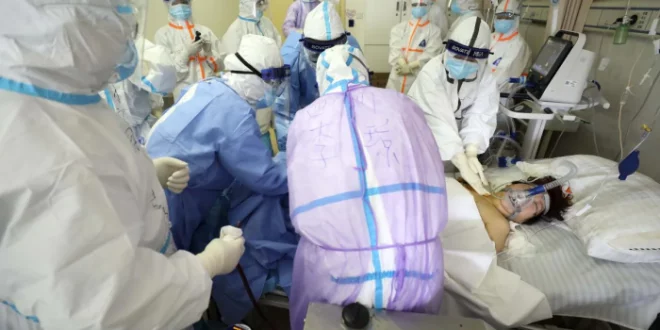New Delhi. Due to the closure of schools during the Kovid-19 epidemic, there has been a lot of loss of education. World Bank (World Bank) President Ajay Banga said this on Wednesday and stressed the need to prepare a system even before the next epidemic so that such a situation can be prevented from arising. Banga said, “We have real challenges regarding the generation going to school during the epidemic. He said, “When we came under the grip of the Kovid-19 epidemic, developed and developing countries were learning to deal with it. There was a huge loss of learning due to prolonged school closures during this period and tackling this loss is not just India’s problem, it is a worldwide issue.
He said, “I am of the opinion that we should learn a lesson now. To a large extent, it has to be ensured that we learn to build a system before the next pandemic…otherwise we will make the same mistakes again. It is certain that the next epidemic will definitely come. The question is, how much do we learn before it arrives? This is a big question for me. ”The World Bank had earlier said that the prolonged closure of schools in India due to the Kovid-19 epidemic could lead to a loss of US $ 400 billion in future earnings of the country in addition to loss of education.
World Bank chief is in India due to G20 meeting
Indian-American Banga (63) took over as the President of the World Bank last month. Banga is the first black person to head either of the two global financial institutions (the World Bank and the International Monetary Fund). He is on his first visit to India after assuming this post. He will attend the meeting of G-20 finance ministers and central bank governors of member countries to be held in Ahmedabad. He visited a skill center located at GMR Varalakshmi Empowerment and Livelihood Center, Dwarka on Wednesday morning and interacted with the students.
Schools remained closed for two years due to the epidemic
According to World Bank estimates, school closures due to the pandemic have disrupted the education of more than 1.6 billion children in 188 countries. Globally, from February 2020 to February 2022, the education system remained almost completely closed. This disproportionately affected the world’s poorest children. A World Bank report states that empirical evidence from all countries, whether rich, poor or middle-income, shows that the effectiveness of distance learning is limited and in some cases leads to worse outcomes.
loss of basic literacy
The report cautioned that the nature of learning is cumulative, ie if a loss of learning occurs for two years, if it is not addressed soon, this loss is likely to increase over time. Especially when this loss is in basic skills like basic literacy and numeracy. The report said, “A student who was in Class II in the year 2020 and had to face school closure for two years, the same student would be expected to clear the Class IV syllabus in the year 2022. There is a big risk here that students will understand too little and, disconnected from learning, will fall further and further behind over time until they stop going to school.”
 Indian Thought Latest News & Views
Indian Thought Latest News & Views



